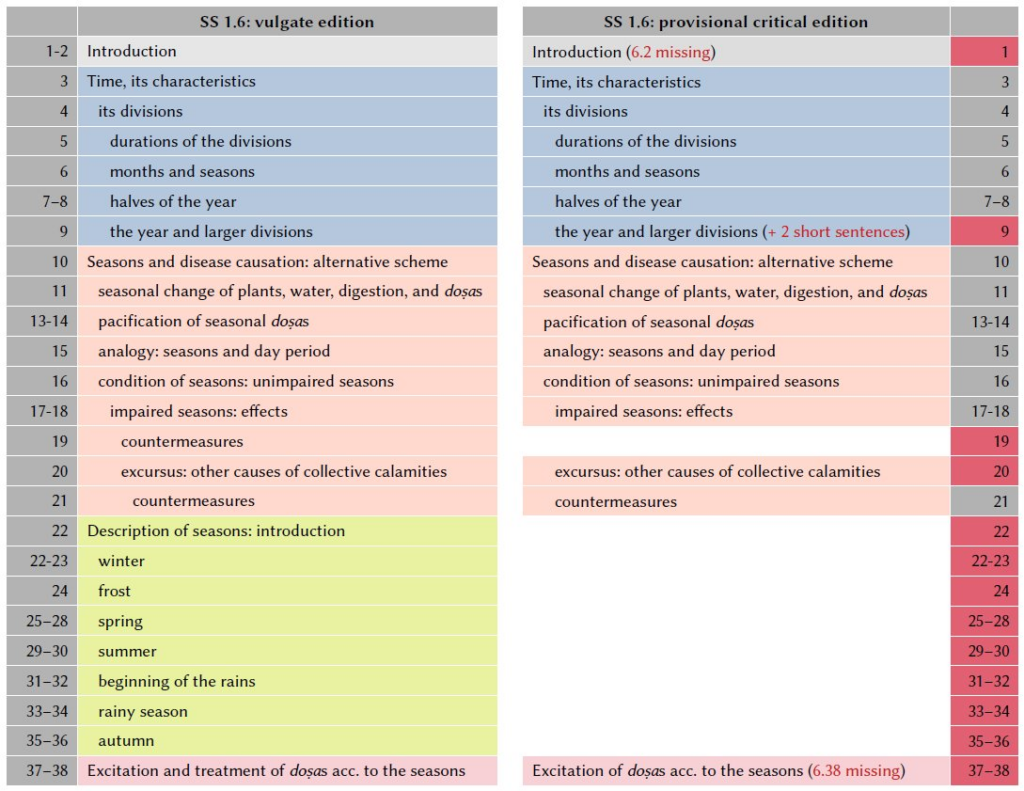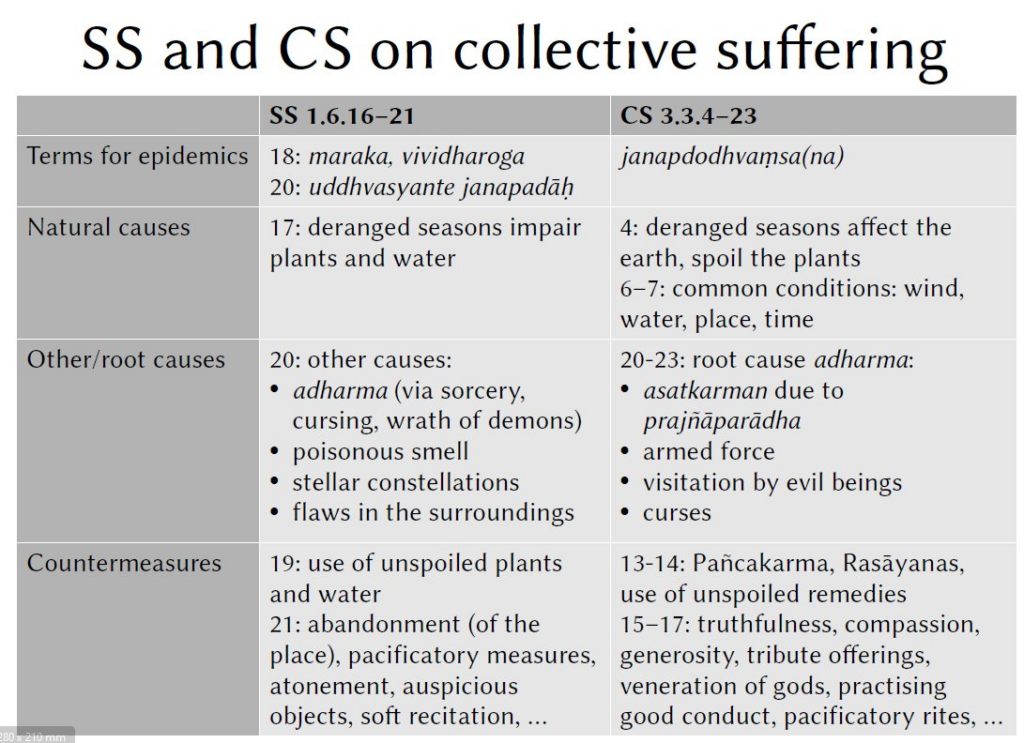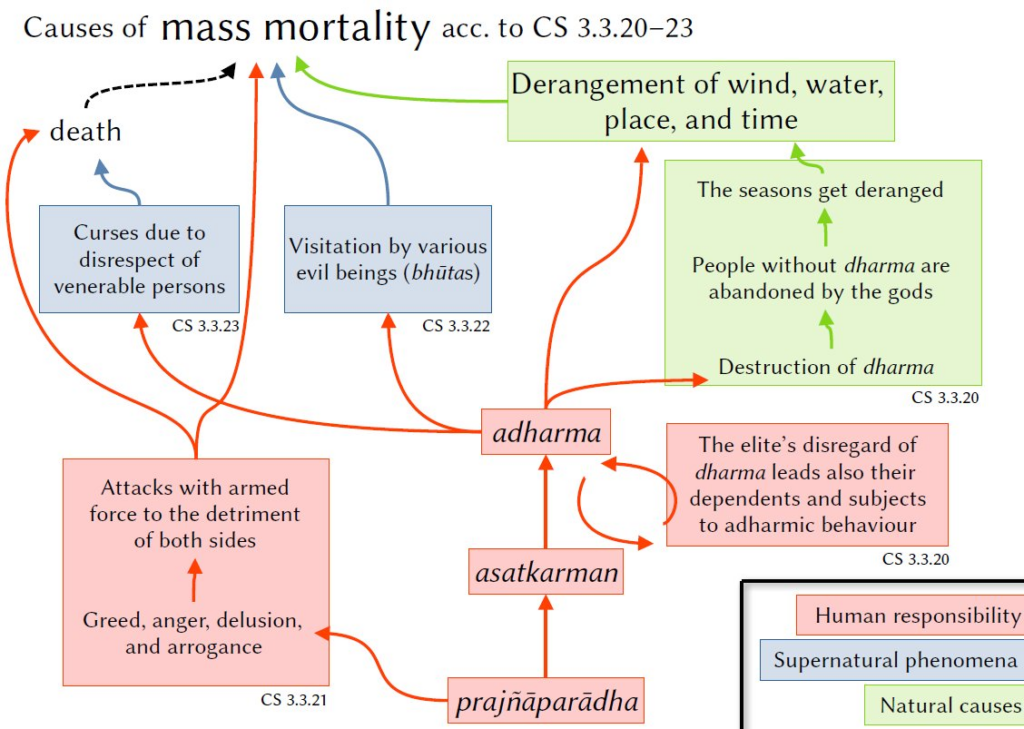or: Why critical editions matter. An example from Ayurveda, Suśrutasaṃhitā.
According to the vulgate editions (none of them critical), all the compilations of early Ayurveda have a chapter on the seasons near their beginning discussing topics such as the structure of time, seasonal hazards, appropriate diet and conduct. Usually they bear a title like “ṛtucarya” (conduct according to the seasons). However, the evolving critical edition provided by the Suśruta Project (sushrutaproject.org) revealed that in the oldest surviving manuscript (878 CE, from Nepal) the seasons chapter of the Suśrutasaṃhitā (SS) contained no seasonal descriptions at all: saktumiva.org/wiki/wujastyk/…

Without these descriptions, the remaining chapter has little similarities with the chapters on the seasons included in the other works and a stronger relation to the chapter on epidemics in the Carakasaṃhitā (CS 3.3):

The core idea on epidemics/collective suffering in SS and CS is very similar. Both texts present deranged seasons as the root cause that results in impairment of plants and water/earth which again leads to collective human suffering. Very likely, both descriptions have a common origin.
While in the CS this simple concept got developed to great detail, focusing on human responsibility …

… in the SS the basic concept was maintained and, over time, a chapter on the seasons was built around it, probably to compensate for a weak point: Contrary to the works of internal medicine (CS, BhS), the surgery focused SS had no such chapter in its first section (called Sūtrasthāna). Without the effort to create a critical edition of the SS, all this would not have become evident.
This post is based on a Twitter thread. For the slides of my talk on this topic, presented at the Suśruta Workshop in Vienna, July 2022, see doi.org/10.17613/3ee7-… (or academia.edu/82949751/).
